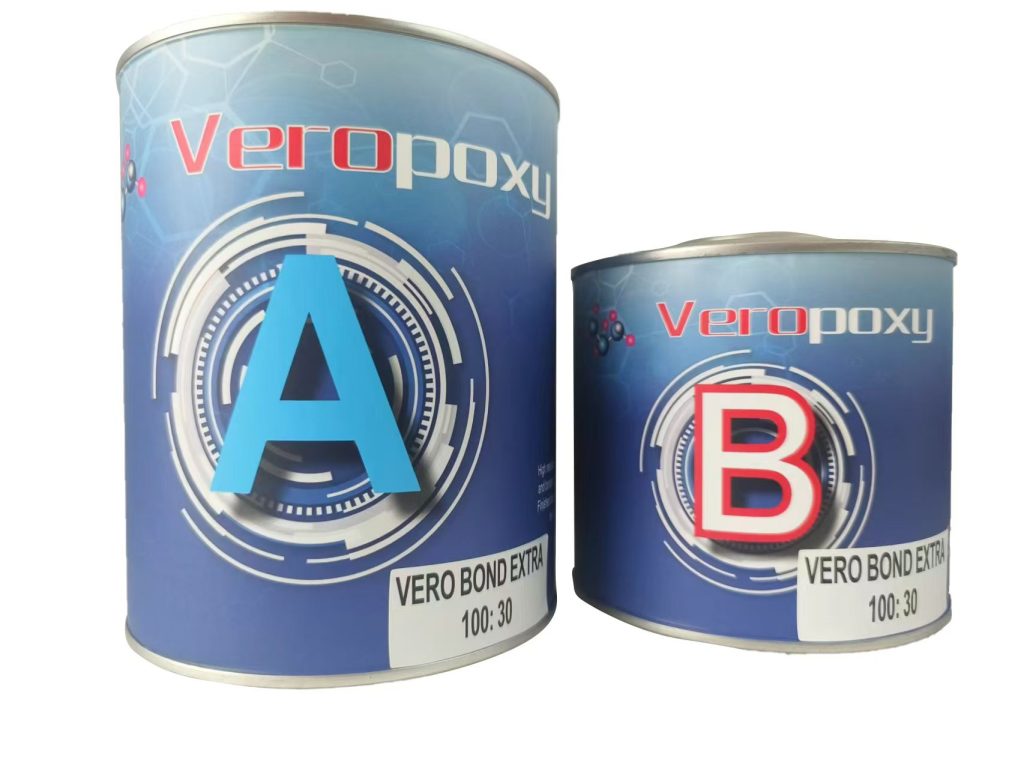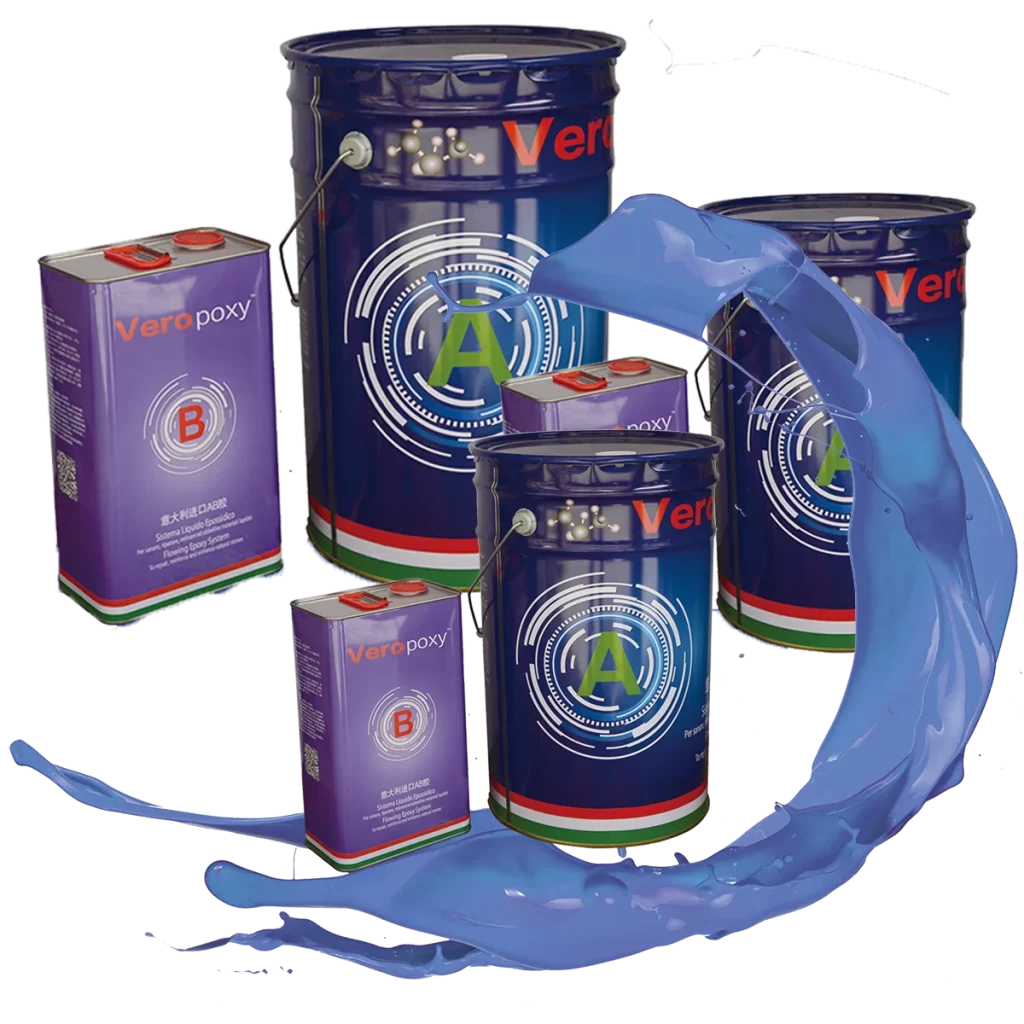Stone surfaces, with their natural elegance and durability, are a popular choice for countertops, flooring, and walls. Though they’re strong, they’re not perfect; staining can be a challenging problem. Stains are well known for seeping into porous stone surfaces and leaving difficult-to-remove marks from red wine spills on counters and grease stains on flooring. Enter epoxy resin: a powerhouse material known for its strong adhesive qualities and durability. But might it also offer a workable answer for stone stain resistance? This page explores how epoxy resin improves stone’s stain-resistant properties, so preserving its appearance and lifetime and hence a great help in keeping these lovely surfaces in good condition.

Epoxy Resin: A Stain Shield
Epoxy resin is widely used in construction for its superior bonding and protective properties. Applied to stone, it leaves a thin, transparent, glossy layer that adheres to the surface. By means of this layer, liquids, dirt, and other pollutants are blocked from seeping into the porous structure of the stone. Like a protective shield for stone surfaces, it preserves appearance and simplifies cleaning at the same time.
Epoxy’s unique molecular structure is what makes it such a fantastic shield. Epoxy forms a dense, cross-linked polymer matrix highly resistant to water and chemicals once it is applied and cured. Apart from stain resistance, this protective layer increases the stone’s resistance to other types of wear, including scratches and fading from UV radiation, so adding to its value.
How Epoxy Resin Improves Stain Resistance
Epoxy’s stain-resistant properties can be attributed to several key factors:
1.Hydrophobic Properties
The surface of epoxy resin is hydrophobic, thus it rejects other liquids including water. Liquids bead up instead of soaking in when they spill onto an epoxy-coated stone surface, which makes wiping them easier before staining starts. In places like kitchens and bathrooms where regular spills are likely, this is especially helpful.
2.Reduced Porosity
Natural stone, especially marble and limestone, is porous, which makes it prone to absorbing liquids that cause stains. These small pores are filled by epoxy resin, which also produces an impermeable layer atop. Reducing the stone’s porosity helps epoxy drastically lower the staining risk since less points allow contaminants to pass through.
3.Chemical Resistance
Many common stains are caused by acidic or alkaline substances like coffee, wine, or cleaning agents. Highly resistant to chemical reactions, epoxy resin is therefore good in preventing stains from strong compounds. The chemical resistance of the resin also makes it less likely to break down over time, so safeguarding the stone over long terms.
4.Enhanced Durability
Unlike traditional sealants, epoxy resin doesn’t wear down easily and has a long lifespan. Its great adhesive nature ensures that the stain-resistant layer won’t chip away or peel off from the surface of the stone. This durability guarantees that the protective layer stays whole for years, so lowering the need for regular resealing.
Testing Epoxy’s Stain-Resistant Properties
A series of tests can illustrate just how effective epoxy resin is at preventing stains on stone. Two marble samples—one coated in epoxy resin and the other uncoated—were subjected to common staining agents including red wine, coffee, and cooking oil in one such test. Clearly, the uncoated marble absorbed the liquids, leaving obvious stains; the epoxy-coated sample showed no absorption and stayed spotless following a basic wipe-down.
Other tests involved exposing the epoxy-coated stone to acidic substances and high temperatures to simulate real-life conditions. The epoxy layer offered better protection even under these demanding conditions, proving that it is not only efficient against regular spills but also holds up under very severe circumstances.
Practical Applications of Epoxy for Stain-Resistant Stone Surfaces
Epoxy resin’s stain-resistant qualities make it perfect for several stone surfaces and uses, including:
Kitchen Countertops
Often exposed to spills, oils, and acidic foods are kitchen surfaces. On counters, an epoxy layer provides a very good way to maintain these surfaces looking clean and new.
Bathroom Vanities
Frequent water, soap, and personal care product exposure makes bathrooms another high-risk area for staining. Epoxy’s hydrophobic characteristics make it a great choice for vanities since they help to free them from chemical stains and watermarks.
Outdoor Patios
Dirt, moisture, and sunlight all expose stones used in outdoor patios and walkways to which stains and discolouration over time could result. Epoxy is a flexible choice for outdoor uses since it offers both UV-protective and stain-resistant layer.
Flooring in High-Traffic Areas
In commercial settings, flooring, doors, and kitchens often see heavy foot traffic and exposure to dirt, spills, and cleaning chemicals. For these spaces, epoxy coatings provide a robust, stain-resistant solution that lowers cleaning and maintenance needs.
Limitations and Considerations
Epoxy resin has certain limits even if it offers outstanding stain resistance. The application process, for example, can be difficult and calls for exact preparation; once cured, epoxy resin can produce a glossy finish that could change the look of natural stone. Before applying epoxy, some users want the matte appearance of untreated stone, thus aesthetic impact is quite important.
Furthermore, epoxy resin is not totally scratch-resistant even if it is quite durable. It’s important to take good care to preserve the stain-resistant qualities of the epoxy over time since heavy or sharp objects dragged across the surface might leave marks.

Epoxy Resin
In improving the stain resistance of stone surfaces, epoxy resin turns out to be a very useful tool. Epoxy greatly reduces common sources of staining by building a protective layer that resists chemicals, blocks pores, and repels water. Epoxy resin reduces maintenance requirements and helps to preserve the natural beauty of stone whether it is in the kitchen, bathroom or outside patio. Although there are some things to take into account, the advantages of epoxy for stain resistance much exceed its restrictions. Epoxy resin is a sensible, long-lasting, and aesthetically pleasing answer as homeowners and designers try to keep stone surfaces looking their best.
Post time: 11 月-06-2024

